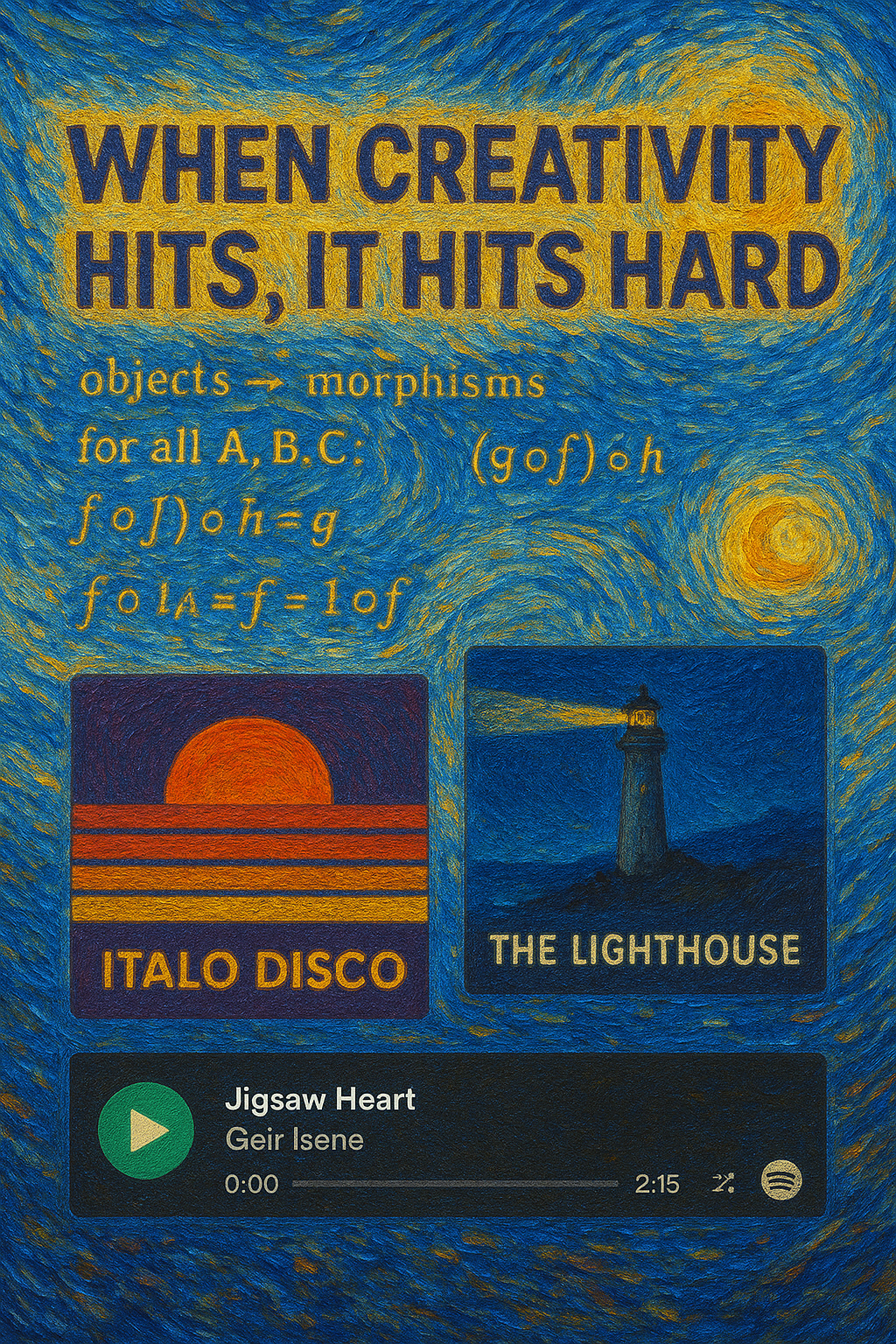When creativity hits, it hits hard. The past few months have been an absolute explosion of output across every domain I touch - from synth-driven musical journeys to revolutionary software updates, from academic philosophy to a forthcoming book that challenges our fundamental understanding of freedom itself.
Musical Journeys into the Absurd and Beyond
Two new albums have just dropped across all major music platforms - Spotify, Apple Music, YouTube Music, and the rest of the digital universe:
“Italo Disco” - A love letter to Midnight Magic. Ten tracks of pure nostalgic energy that bring you back to that 80s genre.
“The Lighthouse” - Ambient textures meet electronic experimentation. A Psytrance album for late nights and deep thoughts - especially the track, “Free Will”.
And because sometimes music needs to be completely absurd, there’s a new single: “Jigsaw Heart” with completely silly lyrics. Experimental meets comedy meets “what the hell did I just listen to?”
Software Revolution - Everything Gets an Upgrade
Remember that blog post about HyperList breaking free from VIM? That was just one example. All my major software has undergone major updates. We’re talking complete rewrites, new features, performance improvements, and AI integration across the board.
RTFM hit version 6.0 - Remote browsing, SSH integration, enhanced tab management. The file manager can now browse remote systems like they’re local. Built on rcurses, it’s rock solid and blazingly fast.
rcurses - My complete rewrite of the ancient curses library continues to evolve. Pure Ruby, no external dependencies, and it just works everywhere. Even gnome-terminal (that was a fun bug).
HyperList Ruby TUI - After 14 years as a VIM plugin, HyperList is now a standalone terminal application. Version 1.5.0 just dropped with encryption support, enhanced presentation mode, and multiple export formats.
rsh (Ruby shell) - Version 2.9 brings AI integration directly into the shell. Just type @ or @@ to chat with AI without leaving your command line. Because why switch contexts when you don’t have to?
The past three months of AI-assisted programming have now hit at least a 10X efficiency boost, probably a lot more. Twenty years of Ruby programming accelerated into hyperdrive.
Mathematical framework for Free Will - The TEG Framework
Coming soon: After 40+ years of research; finally. A formal academic paper on Free Will introducing the TEG framework, a rigorous, structured mathematical approach to understanding existence and free will.
The framework challenges traditional deterministic views while providing a practical model for understanding human agency. It’s dense and thorough, and it might ruffle some academic feathers.
The Freedom Proof
And the big one: “The Freedom Proof” - a forthcoming book that tackles the free will debate head-on with philosophical clarity.
This isn’t another “free will exists because I feel it does” argument. It’s a systematic deconstruction of determinism coupled with a positive proof for human freedom. The implications reach into ethics, law, psychology, and our fundamental understanding of what it means to be human.
It’s unmathematical (except for the Appendices) and practical in that it draws from my decades of coaching work.
The Thread That Connects
Music, code, philosophy, writing - they’re all expressions of the same drive: the need to create, to push boundaries, to refuse the status quo. Whether it’s crafting absurd electronic music, rewriting fundamental libraries from scratch, or challenging centuries-old philosophical debates, it’s all about freedom.
The freedom to create. The freedom to challenge. The freedom to be utterly, unapologetically yourself.
What’s Next?
The creative burst continues. More music in the pipeline. More software updates coming. The academic paper submission is imminent. The book is almost done and will be given to the smartest people I know for review.
Stay tuned.

Find my music on Spotify, Apple Music, and all major platforms.
